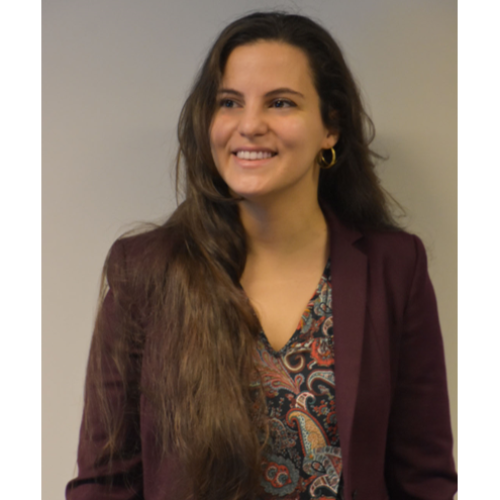
Esther El Haddad
On the occasion of International Women’s day, we spoke to Esther El Haddad, Deputy Team Leader, Emergency Response Coordination Centre (ERCC) to hear her thoughts on why equity and diversity is so important in the sector.

What is your role, and what do you do on a daily basis?
My role as Deputy Team Leader of the Emergency Response Coordination Centre (ERCC) is to be the link between the duty officers and management. I try to make sure that things run smoothly for my colleagues, even during busy periods. I ensure ops are running 24/7, that absences, missions and leave are taken care of, and that colleagues know which tasks they must follow up on. I also support the deployment of the EU Civil Protection Teams and am available to support, guide, and sometimes just listen to them whenever they need.
My day usually starts with a morning stock-take with the colleagues who are on shift. During this I provide guidance and try to make sure that developments from the last days are followed up. It always brightens my day to see my colleagues in the morning. No matter how busy it is, we always find the time to have a good laugh together.
The rest of the day is usually filled with different meetings and bilateral calls with colleagues from HQ, ECHO field colleagues, deployed EU Civil Protection Teams, and other international organisations – most recently, the World Food Programme (WFP) and the United Nations Environment/Office for the Coordination of Humanitarian Affairs (UNEP/OCHA) Joint Environment Unit (JEU).
What motivated you to get involved in civil protection/disaster management?
After finishing my studies in chemistry, I didn’t really know what I wanted to do in life. With some luck, I got an internship with the International Federation of Red Cross and Red Crescent Societies (IFRC), and totally fell in love with the humanitarian and disaster management world.
So, I continued on this path and did a master’s degree in International Humanitarian Action (NOHA) before I ended up in ECHO doing an internship. It has been more than six years since then, and no matter how tired I am, I am still so motivated to wake up and go into the office. It’s a blessing to have such a strong team, who are there for one another in our different times of need (and also fun times!). It brings so much joy to my life knowing that our work makes a difference, and I think this is what gets so many of us ‘hooked’ on this work.
The theme for this year’s International Women’s Day is #EmbraceEquity. Do you think the European Union civil protection/disaster management system can help achieve this? If yes, how?
Yes! I think there is still a lot of room for improvement, but I have already seen improvements in the last six years. We have more female Duty Officers in the ERCC and are definitely deploying more women now than we did 10 years ago. In fact, when I was deployed to Beirut, women made up 50% of the EU Civil Protection Team.
One thing we can do is really focus on the core of our educational systems, and try to advocate for the ‘civil protection life’ from a young age, reaching out to both boys and girls and encouraging them to be part of the national disaster management cycle in their country. This can start very simply, with women firefighters drawn in storybooks, rather than only men, for example. Many years ago, when I worked part-time as a French teacher for 8–10-year-olds, I invited the Lebanese Red Cross to come into the school with their ambulance and life-saving equipment, and share their experiences with the children. If we can get young girls interested like this, then we can get more women involved for sure! At our level, we should always try to make sure there is a gender balance in training sessions, and support more junior experts to deploy together with and learn from more senior experts.
Of course, it's not only about gender. The people we help come from all sorts of different backgrounds and cultures. This means that to reach their hearts and minds, we must connect with them in lots of different ways – the more diverse and different we are, the more hearts and minds we can reach!

The Knowledge Network editorial team is here to share the news and stories of the Knowledge Network community. We'd love to hear your news, events and personal stories about your life in civil protection and disaster risk management. If you've got a story to share, please contact us.
Sectors
Thematic series